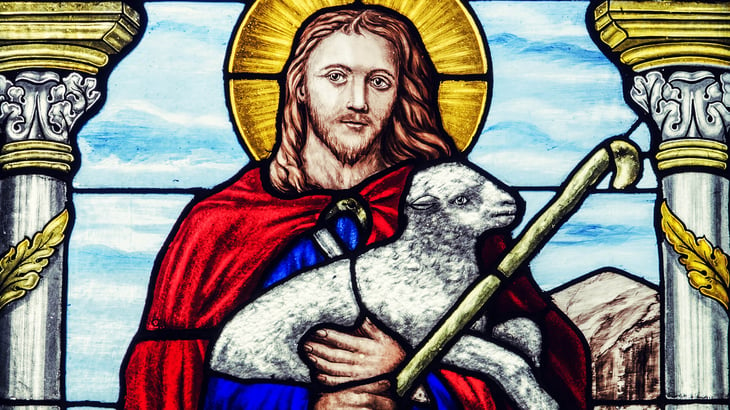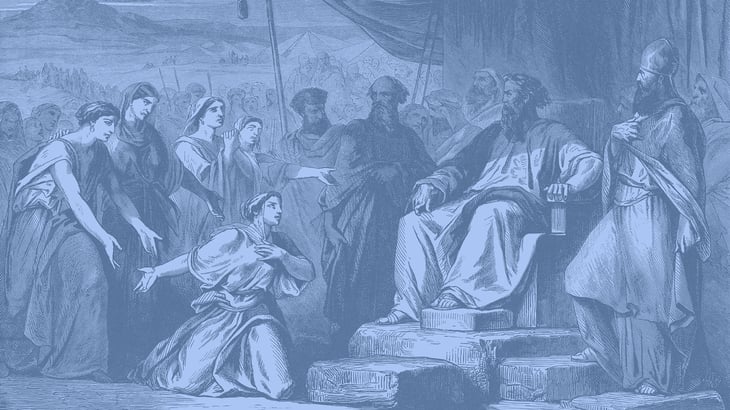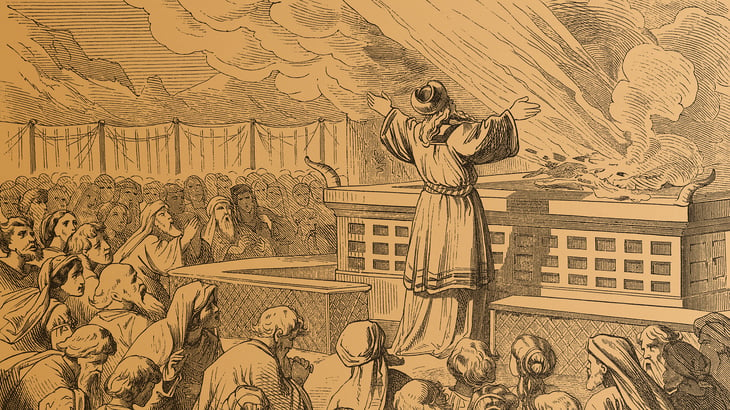Digging Deeper into Scripture: Jesus as the Good Shepherd
As Acts 4, Psalm 23, and 1 John interrelate, two predominant themes present themselves. Firstly, there is certain salvation in Jesus Christ, and in fact, only in Jesus Christ. Acts 4:1–12 records that as Peter spoke to the rulers, elders, and scribe, he asserts, “there is salvation in no one else, for there is no other name under heaven given among men by which we must be saved” (Acts 4:12). Psalm 23 supports this theme where, in the first three verses, David describes God’s provision, restoration and protection “for his name’s sake.” Although not a clear reference to Jesus Christ, we can derive that God ministers to sinners for the sake of the promised Messiah. Then, in 1 John 3:16–24, we find comfort in seeing that Christ is our Good Shepherd, showing His love for His flock through His death and resurrection.
God’s Presence in Baptism and Communion
This post is adapted from The Spirituality of the Cross, third edition, by Gene Edward Veith Jr.
Living with Hope in the Resurrection
This post is an excerpt from Getting Through Grief: Eight Biblical Gifts for Living with Loss.
How can you be absolutely certain that, even in your grief and loss, you can live with hope? How can you know for sure that you won’t be disappointed? The answer is found in Jesus’ resurrection from the once-thought-permanent condition of death.
The Legislative Sections of Numbers
The Book of Numbers gets its name from the censuses in chapters 1 and 26. It recounts the travels and experiences of the people of Israel from Sinai to the borders of Canaan. Laws and directives of all kinds are scattered throughout Numbers and interspersed with Israelite history. Read an excerpt from the Lutheran Bible Companion: Volume 1 below to learn about some of the laws that governed the Israelites.
The Fulfillment of Psalm 22 in Holy Week
Psalm 22 has one of the most memorable opening lines, “My God, My God, why have You forsaken Me?” These words are instilled into our memories as the words Jesus spoke from the cross. Psalm 22 is appropriately one of the two psalms appointed for Good Friday in both the three-year and one-year lectionaries (along with Psalm 31).
Digging Deeper into Scripture: Mark 10
In Mark 10, Jesus demonstrates how He is the perfect sacrifice for all by humbly obeying God the Father through His death and resurrection.
Sacrifice, Atonement, and Holiness in Leviticus
Externally, Israel’s sacrifices have much in common with sacrifices all over the world, but Israel’s sacrifices are sacraments. From God’s side they belong to the realm of justification: God used them to hallow His people and declare them just or righteous. One major evidence of this is the fact that no sacrifices were valid for willful, deliberate sins (committed “with a high hand”); these, if repented of, were apparently covered only by the comprehensive offering on the Day of Atonement.
Jesus Fulfills God's Promise and His Name
This post is excerpted from Blessed Be His Name by Rev. Dr. Kevin Golden.
Everything that the Lord packs into His name is found in Christ. In the name of Jesus, the Lord dwells among us. In the name of Jesus, the Lord’s being resides. In the name of Jesus, the Lord acts with authority. In the name of Jesus, the Lord claims us as His own. In the name of Jesus is all the fullness of the Lord.
How Do You Rest on the Sabbath Day?
As Lent is underway, many Christians throughout the world are participating in various spiritual disciplines. Some are fasting from a particular food, drink, or activity. Some are spending more time in prayer or the study of God’s Word.
These common Lenten disciplines draw on the many themes of Lent, encouraging us ever toward reliance on God rather than reliance on anything else. Another rhythm to Christian life that encourages such reliance and dependence is the Sabbath, the holy day of rest.
Digging Deeper into Scripture: James 1
James, the brother of Jesus, is the author of this book. It is important to remember that James is related to Jesus by Mary, their mother, as Jesus is the Son of God, conceived by the Holy Spirit. Given that James wrote his book around the year AD 50, we know that Jesus has risen and ascended. Pentecost has taken place and the first Christians, equipped with the Holy Spirit and the ability to speak local tongues, are moving out to share the Good News of Jesus Christ. James is writing to Jewish Christians living in the diaspora, that is, the dispersion of Jews into Gentile nations. His goal is to teach wisdom to these men and women who are amid unbelievers, and perhaps more important, those who belong to pagan religions.
























